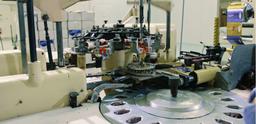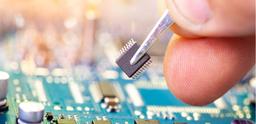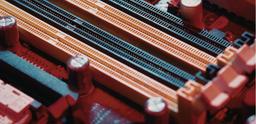.png&w=1920&q=75)
8 Reasons Why The Future Looks Good For PCB Designers
As we march deeper into the digital age, printed circuit board (PCB) designers have found themselves at the forefront of technological innovation. With the increasing demand for smaller, faster, and more efficient electronic devices, PCB designers have become an integral part of the electronics industry, driving the development of cutting-edge technology that has the potential to change the world.
If you're considering a career in PCB design, you may be wondering about the future prospects of the field. The good news is that the future looks bright for PCB designers. Here are some reasons why:
1. Rapidly growing demand for electronic devices
We live in a world where everything is becoming more connected and electronic. As the world becomes more interconnected and reliant on technology, the demand for electronic devices continues to grow at an exponential rate. From smartphones and laptops to smart homes and self-driving cars, PCBs are an essential component in almost all electronic devices. This means that there will be a steady stream of work for PCB designers as the demand for these devices continues to grow.
2. The rise of the Internet of Things (IoT)
The IoT is the concept of connecting everyday devices to the internet, allowing them to communicate with each other and with us. This means that everything from your fridge to your car could be connected to the internet in the near future. PCBs are essential components of IoT devices, and as the IoT continues to grow, so will the need for PCB designers.
3. Advancements in technology
The electronics industry is constantly evolving, and with it, the PCB design industry. New technologies such as 5G, the Internet of Things (IoT), and artificial intelligence (AI) are driving the development of new and innovative devices that require advanced PCB designs. This means that there will always be a need for PCB designers who can keep up with the latest advancements in technology.
4. Globalization
As the world becomes more connected, businesses are increasingly looking to outsource their PCB design work to countries with lower labor costs. This means that there is a growing demand for skilled PCB designers in countries such as India, China, and Vietnam. This globalization of the PCB design industry means that there will be more opportunities for designers to work on international projects and gain valuable experience.
5. Emphasis on sustainability
With climate change and environmental issues at the forefront of public consciousness, there is a growing emphasis on sustainability in the electronics industry. PCB designers are playing a crucial role in developing eco-friendly electronics that are energy-efficient, recyclable, and made from sustainable materials. This means that there will be a growing demand for PCB designers who have experience in designing sustainable electronics.
6. High salaries
PCB designers are highly skilled professionals who are in high demand. This means that they can command high salaries, especially in industries such as aerospace, defense, and medical devices. According to Glassdoor, the average salary for a PCB designer in the United States is $84,000 per year, with some experienced designers earning six-figure salaries.
7. Remote work opportunities
The COVID-19 pandemic has accelerated the trend towards remote work, and the PCB design industry is no exception. Many PCB design companies now offer remote work opportunities, which means that designers can work from anywhere in the world. This not only provides greater flexibility but also opens up opportunities for designers who may live in areas with limited job prospects.
8. Exciting and challenging work
PCB design is a challenging and exciting field that requires a mix of creativity, technical skill, and problem-solving ability. Designers work on projects that push the boundaries of technology and have the potential to change the world. This means that PCB designers are constantly learning and growing, and their work is never boring.
In conclusion, the future looks good for PCB designers. With the rapid growth of the electronics industry, advancements in technology, and a growing emphasis on sustainability, there will always be a demand for skilled PCB designers who can design the next generation of electronic devices. With high salaries, remote work opportunities, and exciting and challenging work, a career in PCB design is a promising and rewarding choice for anyone who is interested in technology and innovation.






